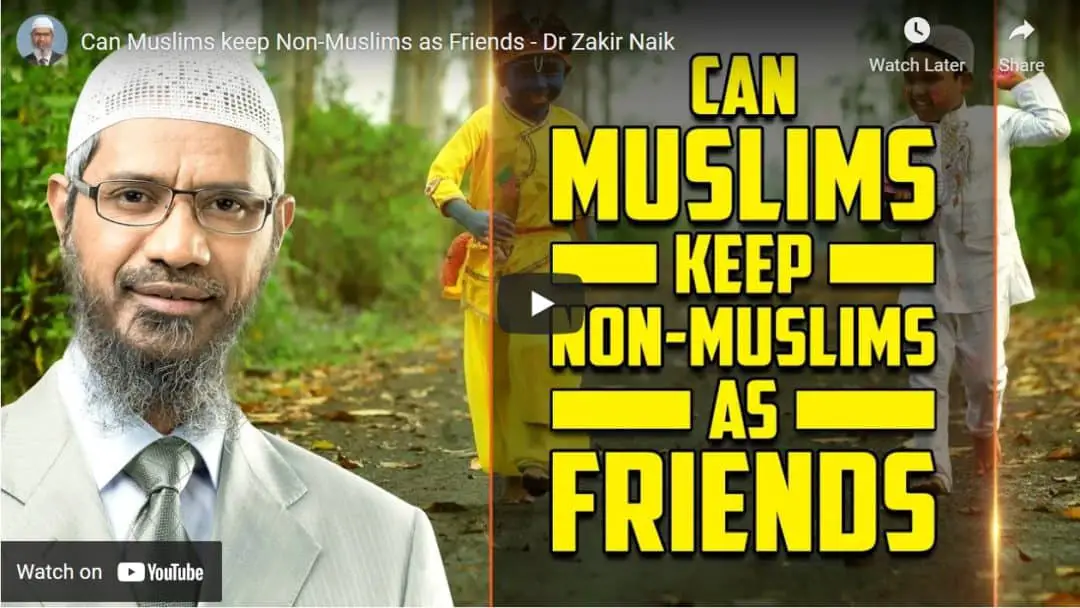In Saudi Arabia, non-Muslim expats often say to me, ‘You get treated better here because you are Muslim.’ The fact that they are not, leads them to believe that in general Saudi people behave less well towards non-Muslims. I have heard this comment so often that I got to wondering. I decided to find out if being Muslim made any difference in the treatment of foreign expats.
To that end, I decided to ask both Muslims and non-Muslim foreigners about their personal experience with Saudis, in general, to find out if there is any truth in the claim. Here is what I found.
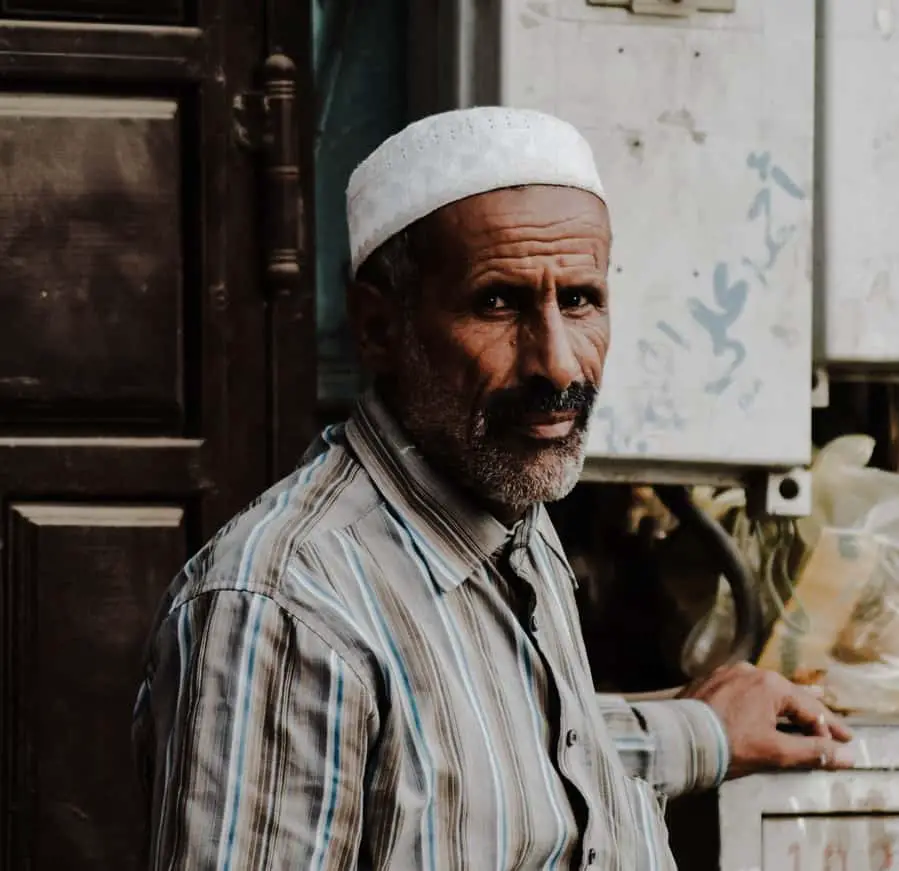
So, Do Saudis Treat Non-Muslim Worse Than Muslim Expats?
Both the Saudi laws and its people do not treat non-Muslim foreign expats any better or any worse than their Muslim counterparts. Behavior is determined not by a person’s religion rather by nationality, job, social status, attitude, and demeanor. Also, Saudis only think in binary terms; Saudi and non-Saudi.
However, I do know that Saudi people love it when they discover that an expat is a Muslim, especially if he/she had converted to Islam. The fact I gave up my old religion and way of life to become Muslim is a reason for immense joy and celebration.
But in general, Saudis tend to think in binary terms of Saudi or non-Saudi. Their treatment of foreign expats is less about religion and more about the fact that they are not Saudi. It is also greatly determined by the jobs expats do as a job, their nationalities, education, social status, and attitude.
Being Saudi or Non-Saudi Determines Treatment NOT Your Religion
Saudis only think in binary terms. You are Saudi or you are non-Saudi. The fact that a foreigner is a non-Muslim matters, but is not a big deal to them.
After all, there are 10-11 million foreigners living in the kingdom many of whom are non-Muslims.
Saudi state regulation and thinking divide their population neatly into two; citizens and residents. Government reports, newspaper articles, and the conversations you hear constantly reinforce this way of categorizing the populace.
In the national discourse, people are either Saudi (Muwatan) or non-Saudi (Ajaanib). There is not much in between.
The Kafala Sponsorship System Reinforces Binary Thinking
This binary us and them way of thinking arises because foreigners come to Saudi Arabia as guest workers under the Kafala system of sponsorship.
In the Saudi mind and way of thinking, foreign labor is cheap, easily managed and a good efficient source of manpower for work in Saudi-owned businesses.
They enjoy far fewer rights than Saudis themselves and the conditions and their length of stay in the kingdom depend on an employment contract and the Saudi Labor law.
In effect, this binary us and them outlook has produced two main classes of people in Saudi Arabia. The first is a local entitled, controlling, and owning class who can only be Saudi nationals.
The other is a needy, inferior, form of human resource and capital of foreign labor that can be used to generate income and benefit in the interests of the nation.
The Kafala system ensures an endless supply of cheap foreign human capital.

Foreigners Are ONLY Guest Workers
The Sponsorship (Kafala) System Of Employment Of Foreigners
All foreign nationals working and residing in Saudi Arabia are sponsored by either a company or an individual Saudi national.
Under the sponsorship system or Kafala, foreign workers have obligations and rights as defined by the Saudi Labor law.
This mainly includes worker conditions, benefits, and contractual obligations.
As of 2021, KSA has started to phase out parts of the sponsorship system by implementing a series of reforms designed to ease worker freedom of movement between employers and to curtail sponsor abuses.
The changes are designed to increasingly meet international labor standards, attract more skilled international employees and provide jobs for unemployed Saudis.
Critics have long campaigned to abolish the Kafala system complaining of gross abuses especially of the 3+ million domestic and farm workers.
These workers have no protection under the Saudi Labor Law, nor proper recourse to a Labor Disputes Courts.
Such workers are particularly vulnerable and routinely experience overwork, get very poor salaries and endure employer abuses even physical beatings and sexual intimidation.
Many foreign workers tolerate Kafala under the obligation to pay back large sums of money to employment agencies exhorted from applicant workers.
These include punitive monthly payments to sponsors for the privilege of being employed in the Kingdom.
The Kafala system only works when companies and individuals behave justly and fairly. However, in many cases, such behavior is rarely witnessed.
The Kafala Sponsorship System Promotes A Binary Way Of Thinking
Today, foreigners can invest, operate businesses, and own properties to live in. However, for the most part, for employment purposes, expats have to be sponsored by a local company or an individual.
In exchange for a work visa, salary, and specific benefits an expat is contracted to sell their time and expertise to a Saudi sponsor.
Unlike a normal work contract, Saudi sponsorship is a type of indenture which means that the business enterprise or an individual Saudi totally controls the working life, the movements, conditions, and length of stay of the expat worker and his family.
The non-renewal of an annual work contract is not only the end of a job rather to the expat and his nearest, it means a complete uprooting of years of work and an established life in the kingdom.
For the future, it also means that he/she loses all entitlement to live and work in the kingdom unless he/she is able to transfer sponsorship to another Saudi entity.
Who Are The Foreign Nationals Living In Saudi Arabia?
Currently, the total population of Saudi Arabia is close to 35 million. Out of this 10,736,293 million are foreign residents accounting for 33% of the Saudi population.
This is more than twice the amount in the US which is only 15%. Most expats are between the ages of 25 and 45. Ethnically, there are 90% Arab with Saudis and 10% Afro-Asian. MFS
Saudi authorities deliberately do not release accurate statistics. The most reliable guesstimate figures are as follows:
| Nationality | Population | Percentage |
| Indians | 2.3 to 3.2 million | 14% |
| Pakistanis | 1.3 to 2.7 million | 10% |
| Bangladeshis | 1.2 to 2.1 million | 8% |
| Egyptians | .8 to 2.9 million | 8%-10% |
| Syrians | .8 to 2.4 million | 8%-23% |
| Yemeni | .7 tor less | 7% |
| Filipinos | .6-1.8 million | 7%-10% |
| Indonesians | .5 to 1.5 million | 4%-8% |
| Sudanese | .44 to .47 million | 4%-8% |
| Afghanistan | .3-.4 million | 2%-3% |
| Burma | .25 million | 1%-2% |
| Jordanian/Palestinian | .22 to .4 million | 1%-2% |
| Ethiopian | .15 or less | .1% |
| Lebanon | .14 to .21 million | .1% |
| Westerners | .12 million | .1% |
Only 15 percent of foreign workers are skilled. The remaining 85% are largely working in agriculture, cleaning, and domestic service (.5 million).
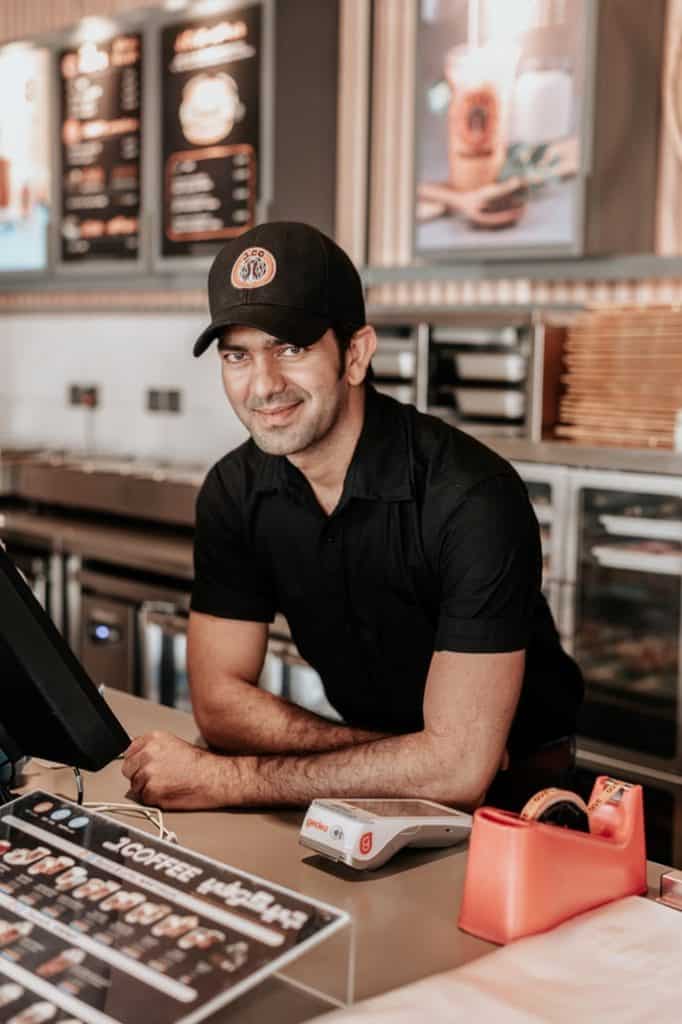
Saudis Treat Non-Saudis According To Their Nationality, Job, Social Status and Outlook
The fact that an expat is Muslim or non-Muslim will have very little impact on his treatment. Foreigners are a class apart and a Saudi’s behavior towards them will also be mostly determined by his/her nationality, job, social status, and general outlook.
The treatment of foreigners operates at both personal and institutional levels and in general, are as follows:
| Position | Nationality | Treatment |
| 1st | US, UK, Canada, South Africa & Europe | High Salary, Respect, and Desirability |
| 2nd | Arab, And The East | Moderate Salary, Respect, and Desirability |
| 3rd | The Philippines, Indians, and Asian Subcontinent | Low Salary, Respect, and Desirability |
1st-US, UK and Europeans Are Highly Regarded
In Saudi Arabia, there are only 0.12 million expats from western countries such as the USA, UK, Canada South Africa, and Europe. They constitute only .1% of the total Saudi population.
In general, Saudis treat them very well mainly because they are nationals of developed nations. They are engineers, teachers, and working professionals.
These workers received comparatively high salaries, with nice benefits, and live in compounds or areas in good quality housing.
Saudis respect westerners very highly, especially Americans and the British. Because they are so few, it is not easy to see or meet western nationals. However, they are highly desirable.
2nd-Arab, Near East Nationals Are Moderately Regarded
Arab nationals constitute about 30% of the Saudi workforce. They are mainly the people from Egypt, Syria, Yemen, Sudan, Jordan, Lebanon, Tunisia, and Libya. In general, Saudis treat these nationals high to moderately well.
This has a lot to do with the fact that they speak the same language and can understand each other well.
They are also the engineers, managers, doctors, teachers, marketing, salespeople, and laboring classes. These nationals enjoy only moderate salaries with benefits, may also live on compounds and in nice housing. Many, however, don’t.
Saudis respect other Arab nationals but do not treat them as well as their US, UK, and European counterparts. MFS
3rd–Philippines, Indians, Pakistanis And The Subcontinent Nationals Are Poorly Regarded
Nationals of the Philippines, Indian, Pakistan, Bangladesh, and other Asian subcontinent countries constitute about 45% of the Saudi workforce. Saudis treat these people with much less respect mainly because most are laborers that do the bulk of the hard, dirty work in the kingdom.
This includes nursing, construction, services, maintenance, and cleaning. The majority of these nationals work long hours, are poorly paid, and live in crowded compounds with only basic facilities.
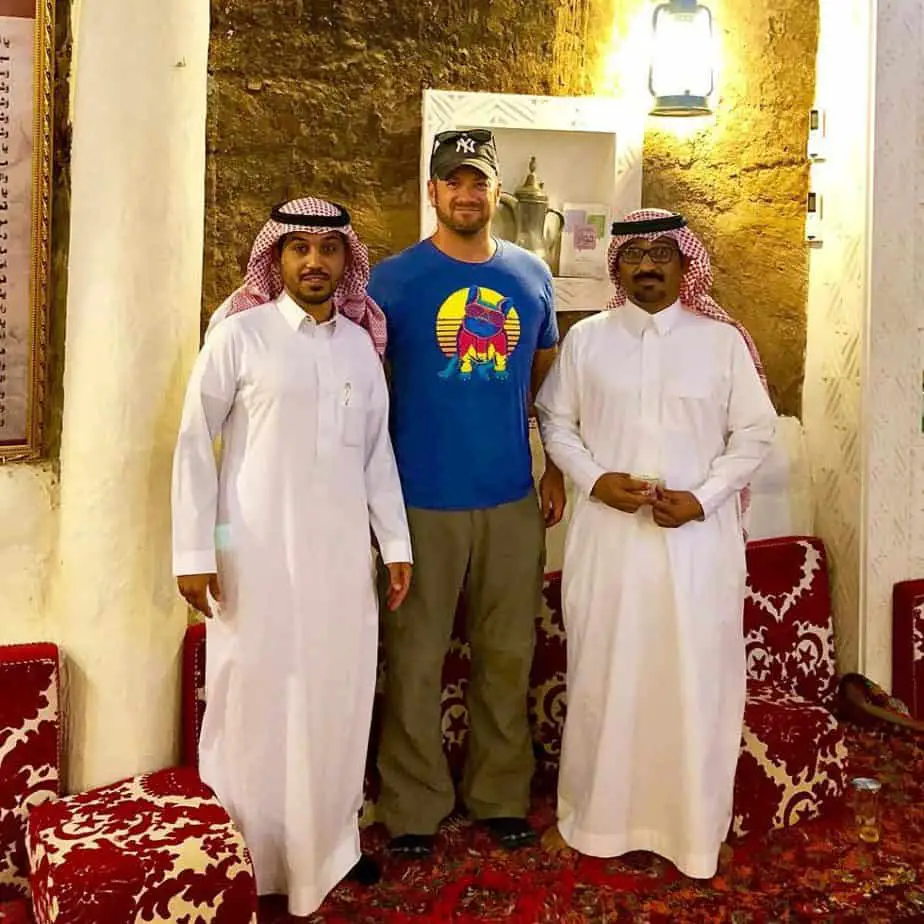
Minimum Salaries for Expat Workers
There is no minimum salary for expat workers. Companies will pay according to the going rates for that particular industry. However, the minimum wage for Saudis has been SAR 4,000 since 2020.
This means that even in spite of a strong push for Saudization, employers (especially small businesses) still prefer hardworking, underpaid expats to the less willing and more highly paid Saudi workers.
Illegals and Over stayers Are Detained And Deported
There are also around 5,00,000 illegal residents. They are mainly migrants who have overstayed their visit, employment, or Hajj/Umrah visa and those too who simply sneak across the border.
To combat this Saudi Arabia has capped the residency of foreigners for 6 years and imprisons and deports over stayers.
Each month the Ministry of Labor captures thousands of violators, fines, and imprisons them before returning them to their home countries.
From time to time, the kingdom grants amnesty for violators without being subject to fines or being blocked from reentering Saudi Arabia legally.
The last was in 2017.
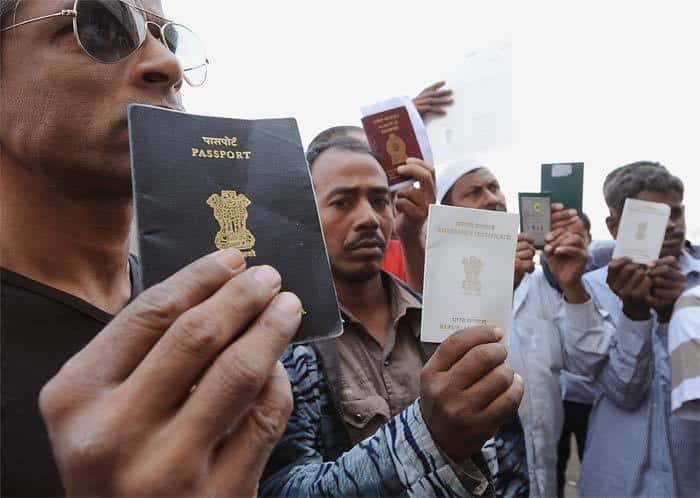
Expat Levies To Deter Expat Families From Settling In Saudi Arabia
All working foreigners in the private sector who have families must pay a punitive monthly expat of 300 SR ($80) for his wife and each child for the privilege of staying in Saudi Arabia.
This levy is to deter foreigners from keeping their families in the kingdom.
In addition, companies that employ foreign workers must pay an additional tax called the expat business levy. They also get fined and denied services for non employing a sufficient number of Saudi nationals. MFS
Treatment of Low Paid Foreign Workers
The expats doing manual labor or domestic service and have a low-class status. They are often overworked, poorly paid, and treated.
Treatment of low-class workers is generally poor They work hard for little and socially are shown little respect. Professional foreigners though are valued and treated more equally.
Conversely, engineers, teachers and managerial workers, and the like, get good salaries and benefits, and they enjoy more status and greater respect.
Increasingly too, foreign nationals are banned from certain forms of employment destined for Saudization.
Conclusion
In Saudi, people are principally viewed as either being Saudi or non-Saudi. It is a clear ‘us and them’ distinction. Discrimination on this basis is both institutional and social.
In every situation, it is better to be from the 1st rank above. Hence, many professional Asians based in the kingdom seek emigration to Canada, New Zealand even the UK due to the fact that advancement and opportunity are not possible in Saudi Arabia.
In the Western world, work and promotion depend on your own hard work and merits irrespective of your origins and nationality.
Possibilities exist to get ahead and to develop an increasingly better standard of living.
In Saudi, passports and race matter hugely irrespective of your efforts and talents. And due to the restrictions of the sponsorship system, advancement is very limited.
As in all third world nations, the whiter and more western you are, the greater the opportunity and privilege.
Of course, not everyone thinks exactly like this all the time, but it is still the prevailing Saudi outlook on expat residents in the kingdom.
Related Questions
What Does The Quran Say About Treatment Of Non-Muslims In Saudi Arabia? The Quran never mentions how non-Muslims are to be treated. However, there is plenty of reference to the treatment of sinners (Muslim or otherwise) in Surah Ibrahim verses 49 & 50.
The word used in Arabic in verse 49 is ‘criminals’ (Mujrimoon) meaning either sinful Muslims or Non-Muslims.
‘On that Day you shall see the guilty ones secured in chains’
‘Their garments shall be black as if made out of pitch, and flames of the Fire shall cover their faces.’
Surah Ibrahim Verses 49 & 50
(Sinners will be chained together, bodies covered in tar, and faces aflame.)

